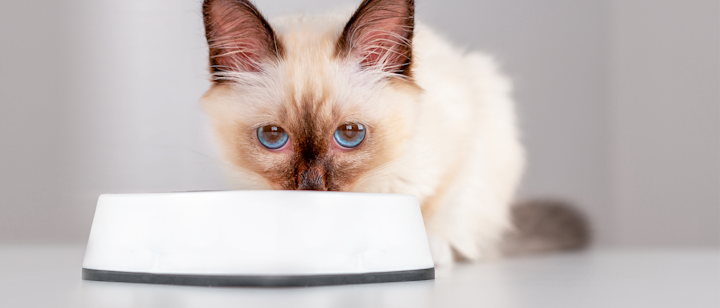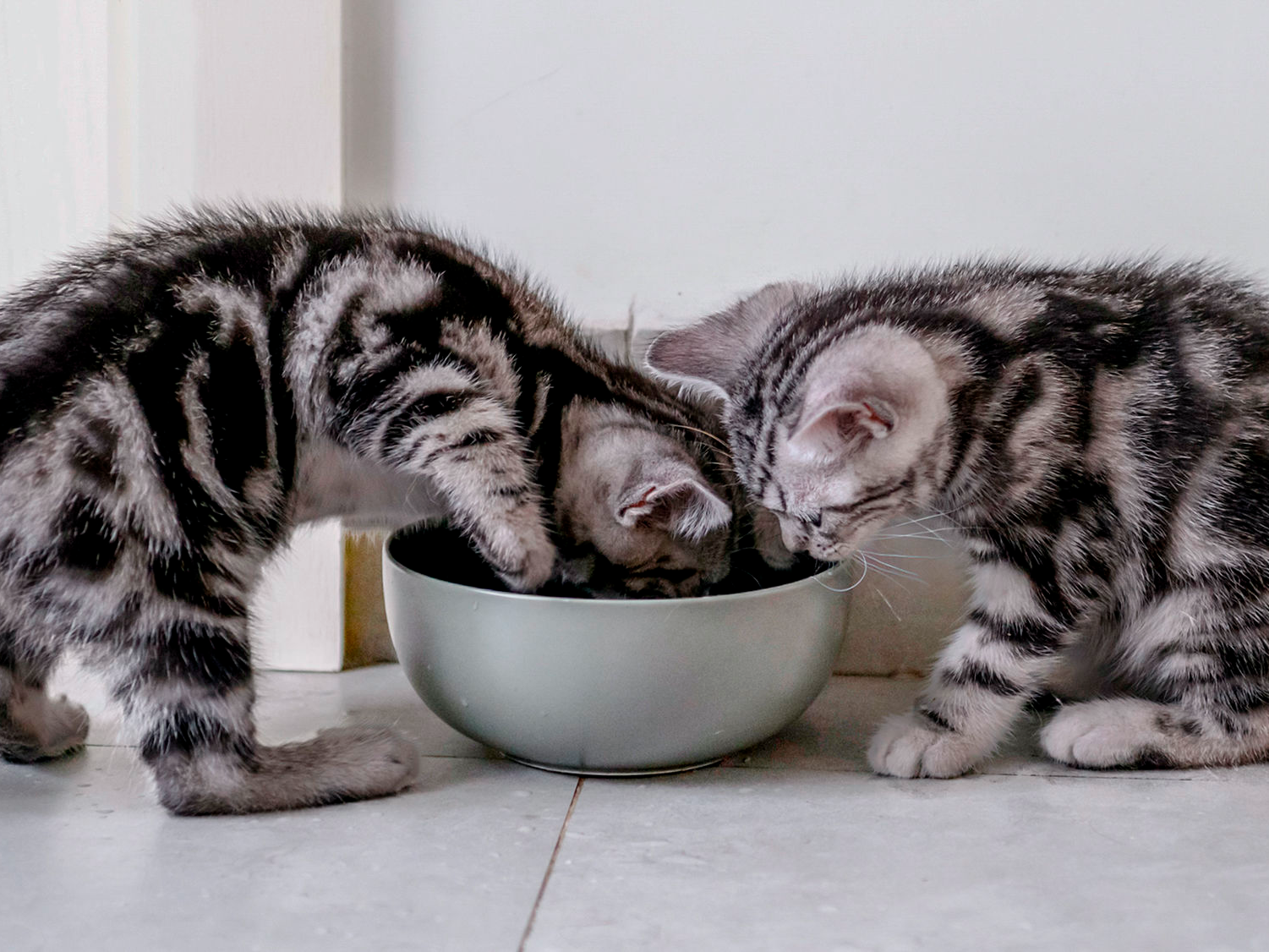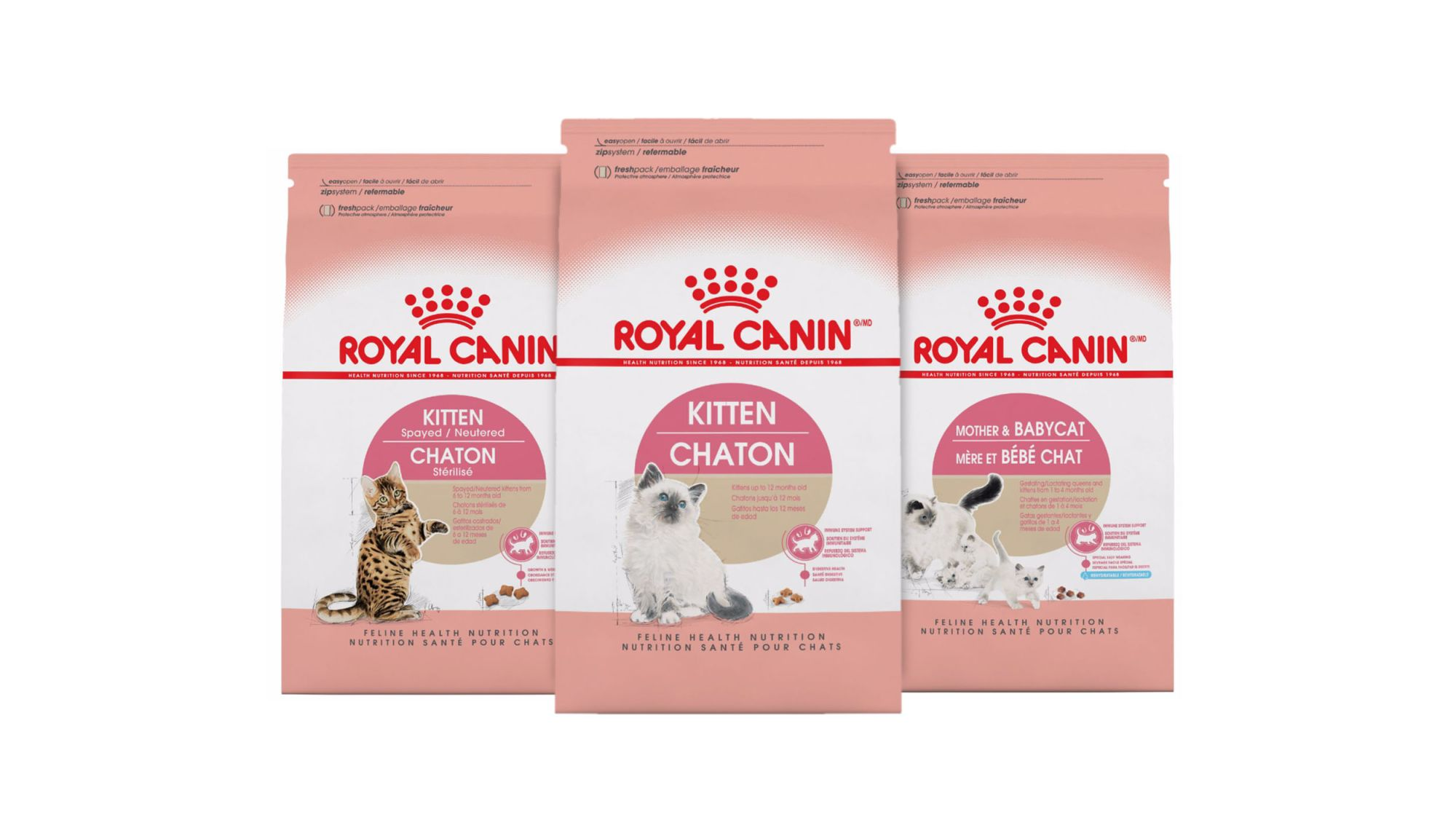Kitten feeding guide by development stage

From birth to adulthood, there are different ways you can support your cat to be healthy and content, including their diet and how they develop a relationship with their food.
Feeding your kitten up to four weeks old
From birth to a month old, your kitten will be getting all the nutrition they need from their mother when they suckle. At first, they’ll receive colostrum – a milk-like liquid which helps support their immune system in early life – followed by milk. If your vet advises you to, you can feed the newborn cat kitten milk to make sure they’re getting everything they need; this is particularly important if their mother has no milk, not enough milk, or the litter is very large.
At first, your kitten may lose a little weight as it learns to suckle. However, after this it should gain weight steadily – weigh it each day and consult your vet if its weight stagnates or drops. The best thing you can do during this period is make sure your kittens and their mother are safe and undisturbed, leaving them to feed in peace.
Feeding your kitten from four weeks to four months
At four weeks old, your kitten will start to show an interest in solid food and you can begin weaning. Do this by rehydrating a dry kibble with kitten milk or water to a mushy consistency so your kitten will be able to eat it easily, or use a wet food instead. Choose a feed which is specifically designed for kittens which will support their growth – for example, it should be enriched with antioxidants to stimulate their production of antibodies, as during weaning the immunity they’ve gained from their mother begins to decrease.
You can begin to set good eating habits by making sure you space out your kitten’s food, play, sleep and litter areas, echoing what they would do naturally. Have plenty of fresh water available, too, to keep your kitten hydrated.

Feeding your kitten from four months onwards
As your cat matures, maintain good feeding habits and avoid stress by letting it eat in peace in a calm place. Cats are natural grazers, and will eat 15 to 20 very small meals a day. Lots of cats will self-regulate their eating, so you can leave out the total recommended portion of food for the day and allow them to revisit their bowl.
If you choose to get your cat neutered, there is the risk they’ll gain weight rapidly after the procedure as their energy expenditure reduces by 30%, yet their appetite increases by up to 26%. Choose a food that’s specially formulated for sterilised cats, and which is appropriate for their breed and gender, and monitor their weight closely.
You should also consider your cat’s lifestyle when feeding them as an adult cat, from around 12 months onwards. Indoor cats with sedentary lifestyles need less energy than outdoor cats, so it’s important to give them an appropriate portion to avoid them gaining weight and suffering from connected health problems.
Setting up good feeding behaviours and providing your kitten with the right food for their needs can help them become a healthy and content adult. If you’re not sure of the right way to feed your cat, get in touch with your vet for advice.
Artículos relacionados

Tailored nutrition for your kitten
Dale like y comparte esta página